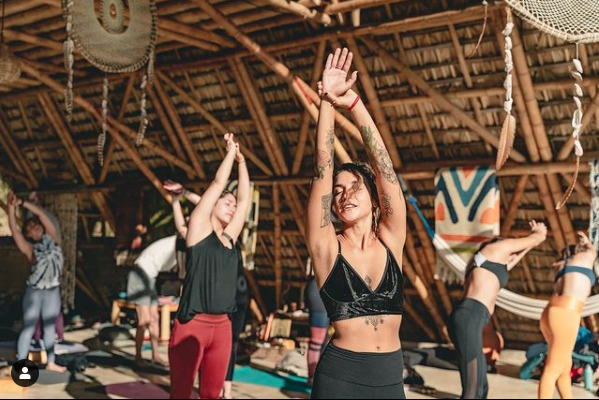Reiki 101: Vidya Tasa-Chadha
- Vidya Tasa-Chada

- Dec 1, 2020
- 3 min read
When people find out I practice reiki they are either sceptical or curious. More often that not it is curiosity that I am met with, so I decided to put together this little post to inform you on what reiki even is and how you can incorporate it into your life.
So let's dive in, what IS reiki anyway?
Reiki is a Japanese energy healing modality with the purpose of elevating disease (dis-ease) through the movement of energy.
We Westerners tend to think of reiki as a concept similar to chi or prana. Although these are completely different principles from different religious traditions, they share some similarities. Essentially, these principles can be understood as the life force or inner light that is inside all of us. In order to actually conceptualize reiki energy we need to consider the way Japanese culture interprets spirituality, which is complex with many variants. But in its most basic way (from a foreigners perspective) reiki is an energetic medicine system that encompasses all areas of life. In my mind I relate it to the energetic understanding of Ayurveda which I grew up with in Indian culture, although reiki is a metaphysical healing practice or technique whereas Ayurveda is a system of knowledge. Energetic healing is quite different from our Western perspective of medicine, but we won't get into that here. The reiki tradition was brought to North America around the 1930s, and there are many different lineages of reiki all with the same goal of balancing the mind, body, and soul.
How does it work?
When undergoing a reiki treatment, the energy goes where it needs to go. The practitioner need not channel one specific area, although that can also be done. It is typically performed by an attuned healer who has probably trained in a 1:1 setting with a mentor teacher. Each practitioner will have a different style/technique which is unique to their personal healing. Although, there are certain hand symbols and target areas which are almost always used. Some practitioners use crystals, sound healing, or or other metaphysical tools to deepen their practice (I love to use essential oils and crystals) but these are based on the practice of the healer.
"It is important to keep in mind that all healing is self healing. However, this understanding does not mitigate the profound impact of an attuned practitioner guiding you through your healing journey. Rather, I say this because the energy that you bring into any healing session is what you will get out of it. You must be open to healing, without allowing ego to block the flow of energy. And with that being said, you can also perform reiki on yourself with practice and patience. Learning how become a reiki practitioner takes dedicated study and guidance, but there is no harm in trying it on yourself. In fact, it may be an opportunity for you to recognize the healing that exists within you and within all of us. "
How do I perform reiki for self-care?
Simply start with intuition. Observe what area of the body is asking for some healing, and bring your hands to this place. Either hover them above the body or place them directly on the body. Close your eyes, empty your mind, breathe deeply, and channel the movement of positive life-force energy. This might sound incredibly abstract, but give it a try and you will find your way. If there is no particular area of the body that is calling you, try bringing the palms of your hands over your eyes, cupping your ears, or bringing your hands like a bowl to the base of your neck. I like to do each of these three placements when I wake up in the morning and before I go to sleep as a way to empty the contents of my mind. Some other powerful areas are the womb space (especially if you are experiencing menstrual cramps or are postpartum), the feet, the heart, and the throat. We can also infuse our home with reiki energy by channeling it into our crystals, food, our bed, and even our pets.
If you are interested in making reiki a part of your daily self-care practice, start researching the origins of reiki and inform yourself on the beautiful Japanese culture where it comes from. There are so many other Japanese spiritual practices which absolutely captivate me, and I would love to study them further someday.
What other practices are you inspired by?
How will you incorporate reiki into your life?
Let me know in the comments!
Vidya Tasa-Chada
expressive writing,
movement & meditation
bpd doula
ayurvedic living
consciousness raising for young femmes
@expressionsbyvidya
@soulsistersociety


















Comments